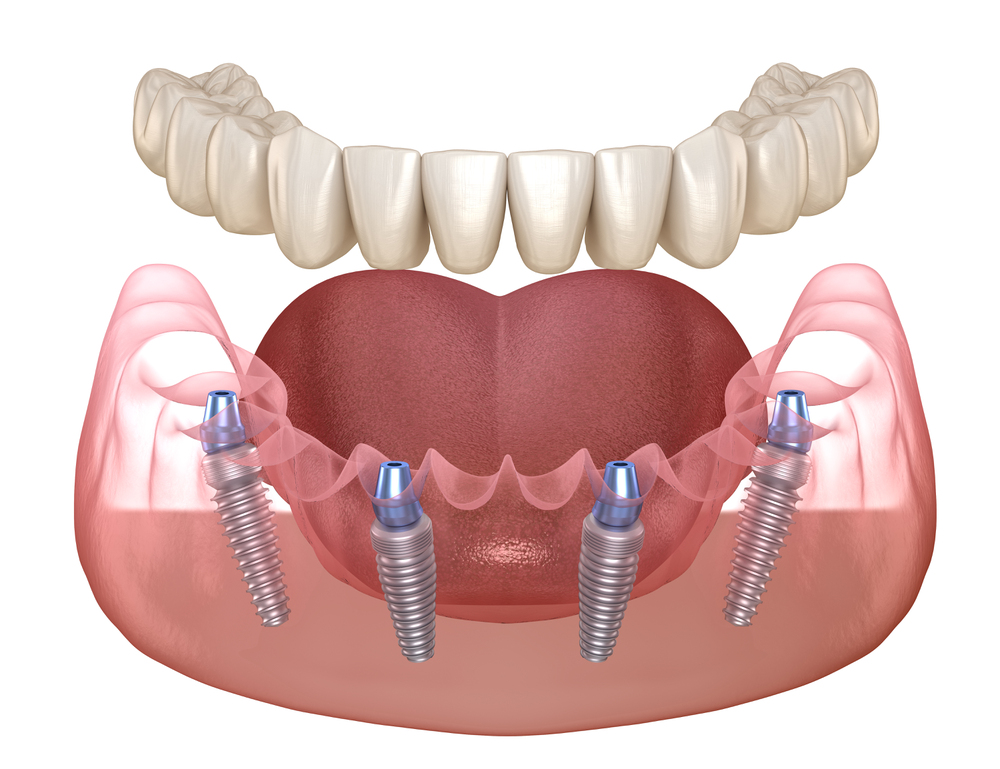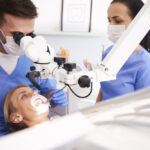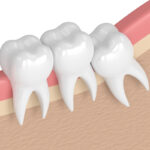When we think of healthy teeth, the first thing that often comes to mind is a beautiful smile. While it’s true that strong, white teeth contribute to a confident and attractive appearance, the significance of maintaining healthy teeth goes far beyond aesthetics. Oral health is a cornerstone of overall well-being, impacting everything from nutrition to heart health. As the saying goes, “health begins with healthy teeth.” This article will explore the far-reaching implications of oral health, the modern dental advancements available to maintain it, and why procedures like the All-on-4 dental procedure are revolutionizing dental care.
The Foundation of Overall Health
Our mouths are the gateway to our bodies, and the condition of our teeth and gums can provide early warning signs of systemic health issues. Research has shown a strong connection between oral health and a variety of chronic diseases, including heart disease, diabetes, and respiratory infections. Poor oral hygiene can lead to the accumulation of bacteria in the mouth, which can then enter the bloodstream and contribute to inflammation and infections elsewhere in the body. This highlights the importance of maintaining healthy teeth not just for the sake of appearance, but as a critical component of overall health.
Gum disease, also known as periodontitis, is a common but preventable condition that can have serious consequences if left untreated. It is caused by the buildup of plaque—a sticky film of bacteria that forms on teeth. If not removed through regular brushing and flossing, plaque can harden into tartar, leading to gum inflammation and eventually, the destruction of the tissues and bone that support the teeth. Advanced gum disease has been linked to an increased risk of cardiovascular diseases, as the inflammation in the gums can spread to the arteries, leading to conditions like atherosclerosis.
Moreover, diabetes and gum disease share a bidirectional relationship. People with diabetes are more prone to infections, including gum disease, and uncontrolled gum disease can make it more difficult to manage blood sugar levels. This cyclical relationship underscores the need for diabetic patients to pay particular attention to their oral health.
Nutrition and Oral Health: A Symbiotic Relationship
Healthy teeth are essential for proper nutrition, which in turn supports overall health. The ability to chew food properly allows for the consumption of a wide variety of foods, ensuring that the body receives all the necessary nutrients. Conversely, missing, damaged, or sensitive teeth can lead to difficulties in eating certain foods, which may result in poor nutrition and a decline in health.
For example, people with missing teeth or poorly fitting dentures may avoid fruits, vegetables, and other fibrous foods that are difficult to chew. This can lead to a diet that is low in essential nutrients like vitamins A and C, calcium, and fiber, all of which are important for maintaining overall health. In this context, dental procedures like the All-on-4 dental implants can be life-changing. This innovative treatment involves placing four implants in the jaw to support a full arch of teeth, providing a stable and permanent solution for those with significant tooth loss. By restoring the ability to eat a wide range of foods, the All-on-4 procedure helps patients regain their nutrition and, by extension, their overall health.
The Role of Oral Health in Mental and Social Well-being
The benefits of healthy teeth are not limited to physical health; they also play a crucial role in mental and social well-being. A healthy smile can boost self-esteem and confidence, which are important factors in both personal and professional interactions. Conversely, poor oral health can lead to feelings of embarrassment, social anxiety, and even depression.
People who are self-conscious about their teeth may avoid smiling, laughing, or even speaking in public, which can lead to social isolation and a diminished quality of life. This is particularly true for those who suffer from tooth loss or significant dental issues. The psychological impact of such conditions can be profound, affecting relationships, job performance, and overall happiness.
Dental restorations, such as the All-on-4 dental procedure, offer a solution to these challenges. By providing patients with a complete set of fixed, natural-looking teeth, this procedure can dramatically improve not only a person’s appearance but also their confidence and ability to engage fully in life. The importance of this cannot be overstated, as mental health is an integral part of overall health.
Modern Dental Advancements: The All-on-4 Dental Procedure
In the realm of modern dentistry, the All-on-4 dental procedure represents a significant advancement in the treatment of tooth loss. Traditional dentures have long been the go-to solution for missing teeth, but they often come with challenges such as discomfort, instability, and difficulty in eating certain foods. The All-on-4 procedure addresses these issues by providing a stable, long-lasting alternative that closely mimics the look and function of natural teeth.
The procedure involves placing four dental implants in the jawbone, which then support a full arch of prosthetic teeth. These implants act as anchors, preventing the dentures from slipping or moving. This stability allows patients to enjoy a wider range of foods and engage in social activities without fear of embarrassment. Furthermore, the All-on-4 procedure can often be completed in a single day, making it a convenient option for those seeking a quick and effective solution to tooth loss.
The importance of healthy teeth extends far beyond the cosmetic benefits of a beautiful smile. Oral health is intimately connected to overall health, influencing everything from nutrition to mental well-being. As the adage goes, “health begins with healthy teeth,” and investing in dental care is investing in your long-term health. With advancements like the All-on-4 dental procedure, maintaining a healthy, functional smile has never been more accessible, ensuring that everyone has the opportunity to enjoy the full benefits of good oral health.













